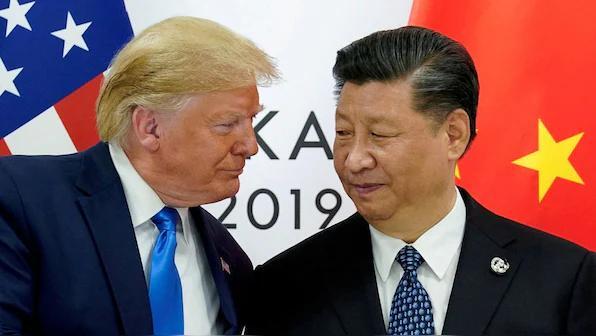
China Refuses to Join Denuclearisation Talks with US & Russia
In a recent development, China has refused to join trilateral denuclearisation talks with the United States and Russia, rejecting President Donald Trump’s call to include Beijing in future negotiations. This decision has sparked concerns among global leaders and experts, who had been hoping for a collaborative effort to address the growing threat of nuclear weapons.
According to Chinese Foreign Ministry Spokesperson Guo Jiakun, the expectation that China would participate in such talks is “neither reasonable nor realistic”. This stance is largely due to the significant disparities in nuclear capabilities between China and the US, with the latter boasting a much larger arsenal.
The refusal to participate in denuclearisation talks comes as a setback for global efforts to reduce the threat of nuclear war. In recent months, there have been growing concerns about the escalating tensions between the US and Russia, with both nations engaged in a war of words over issues such as arms control and nuclear modernization.
The issue of nuclear disarmament has taken center stage in the global agenda, with many calling for a reduction in the number of nuclear weapons held by nations. The US and Russia, which hold the largest arsenals, have been engaged in a series of high-stakes negotiations aimed at reducing their nuclear stockpiles.
However, the involvement of China in these talks has been a key sticking point. While China has a relatively small nuclear arsenal compared to the US and Russia, it has been increasingly assertive in its foreign policy, with some experts warning that its growing military capabilities could pose a significant threat to regional stability.
The Chinese Foreign Ministry’s statement on the issue is a clear indication that Beijing is unwilling to compromise on its nuclear capabilities, at least for now. The statement read, “China and the US are not at the same level at all in terms of nuclear capabilities… It’s neither reasonable nor realistic to expect China to participate in trilateral talks.”
This stance has been met with disappointment from many quarters, with some calling for a more collaborative approach to addressing the issue of nuclear disarmament. “The refusal of China to participate in trilateral talks is a missed opportunity for global leaders to work together towards a safer and more secure world,” said Dr. Emma Campbell, a leading expert on international relations.
The implications of China’s refusal to participate in denuclearisation talks are far-reaching, with many experts warning of a potential arms race in the Asia-Pacific region. The region is already witnessing a significant buildup of military capabilities, with nations such as Japan and South Korea increasing their defense spending in response to the growing threat from North Korea.
The US and Russia, meanwhile, have been engaged in a series of high-stakes negotiations aimed at reducing their nuclear stockpiles. In February, the two nations signed a landmark agreement aimed at extending the New Strategic Arms Reduction Treaty (New START) for five years.
However, the involvement of China in these talks has been a key sticking point. China has been reluctant to engage in talks on nuclear disarmament, citing concerns about the US and Russia’s nuclear superiority. The US, meanwhile, has been pushing for China to join the talks, arguing that its growing military capabilities pose a significant threat to regional stability.
The refusal of China to participate in denuclearisation talks is likely to have significant implications for global efforts to reduce the threat of nuclear war. With tensions between the US and Russia escalating, the need for a collaborative approach to addressing the issue of nuclear disarmament has never been more pressing.
As the world continues to grapple with the challenges posed by nuclear weapons, it is clear that the refusal of China to participate in denuclearisation talks is a significant setback. However, it is also an opportunity for global leaders to rethink their approach to nuclear disarmament and to explore new avenues for reducing the threat of nuclear war.



